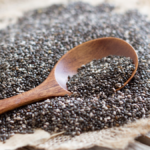Broccoli is often hailed as a superfood, packed with vitamins, minerals, and fiber that are essential for a healthy diet. However, like all good things, moderation is key. While broccoli offers numerous health benefits, consuming it in excessive amounts can lead to some unexpected issues. This article explores the potential downsides of overindulging in this green cruciferous vegetable.
| Potential Issue | Description |
|---|---|
| Digestive Problems | Excessive fiber intake can lead to bloating and gas. |
| Thyroid Function | High consumption may interfere with thyroid hormone production. |
| Kidney Stones | Broccoli is high in oxalates, which can contribute to kidney stones. |
| Blood Thinning | Contains vitamin K, which can affect blood clotting. |
| Allergic Reactions | Some individuals may have allergies to cruciferous vegetables. |
| Interference with Medications | May interact with certain medications, particularly anticoagulants. |
| Excessive Nutrient Intake | High levels of certain nutrients can lead to toxicity. |
Digestive Problems
While fiber is essential for a healthy digestive system, consuming too much of it can lead to digestive discomfort. Broccoli is rich in fiber, and eating large quantities may result in bloating, gas, or even diarrhea. It’s important to introduce fiber-rich foods gradually into your diet to allow your digestive system to adjust.

Thyroid Function
Broccoli belongs to the family of cruciferous vegetables, which contain goitrogens. These compounds can interfere with thyroid hormone production when consumed in high amounts, potentially leading to thyroid dysfunction. For individuals with pre-existing thyroid issues, moderation is especially crucial when it comes to eating broccoli and similar vegetables.

Kidney Stones
Broccoli is high in oxalates, which are compounds that can contribute to the formation of kidney stones. For individuals predisposed to kidney stones, consuming excessive amounts of high-oxalate foods like broccoli could increase the risk of stone formation. It’s advisable for such individuals to monitor their intake of broccoli and other oxalate-rich foods.

Blood Thinning
Broccoli is also a rich source of vitamin K, which plays a crucial role in blood clotting. For individuals on blood-thinning medications, such as warfarin, a sudden increase in vitamin K intake from broccoli could interfere with the effectiveness of the medication. It’s important to maintain a consistent intake of vitamin K to avoid complications.

Allergic Reactions
Although broccoli is generally safe for most people, some individuals may have allergic reactions to cruciferous vegetables. Symptoms can range from mild to severe and may include itching, swelling, or difficulty breathing. If you suspect an allergy, it’s essential to consult with a healthcare professional.

Interference With Medications
Broccoli can interact with certain medications, particularly anticoagulants. The vitamin K in broccoli may counteract the effects of these medications, leading to potential health risks. Always consult with a healthcare provider before making significant changes to your diet, especially if you are on medication.

Excessive Nutrient Intake
While broccoli is nutrient-dense, consuming it excessively can lead to an imbalance of nutrients. For instance, high intakes of vitamin C or other vitamins can lead to toxicity, resulting in various health issues. It’s vital to maintain a balanced diet and consume a variety of vegetables to avoid nutrient overload.

FAQs
Can Eating Broccoli Every Day Be Harmful?
Eating broccoli every day is generally safe for most people, but moderation is key. Excessive consumption can lead to digestive issues and other health concerns. It is advisable to vary your vegetable intake to ensure a balanced diet.
How Much Broccoli Is Considered Too Much?
While there is no specific amount that is considered “too much,” consuming more than 1-2 cups of broccoli daily may lead to digestive discomfort or other issues for some individuals. It’s best to listen to your body and adjust your intake accordingly.
What Are The Health Benefits Of Broccoli?
Broccoli is rich in vitamins C and K, fiber, and various antioxidants. It supports immune health, promotes digestion, and may reduce inflammation and the risk of chronic diseases. However, these benefits are best experienced in moderation.
Can I Cook Broccoli To Reduce Its Negative Effects?
Cooking broccoli can help reduce its goitrogen content, making it safer for those concerned about thyroid issues. Steaming or lightly cooking can also make it easier to digest and may reduce gas production.



